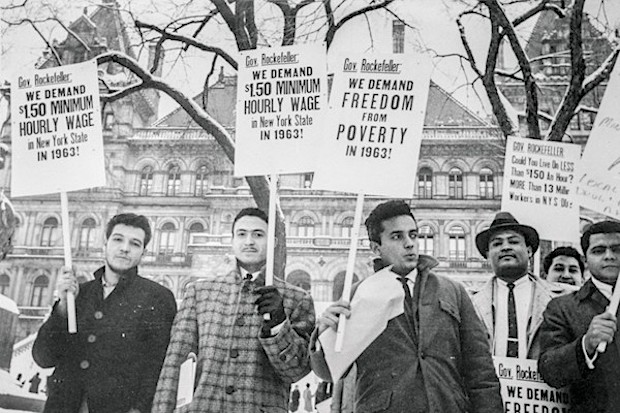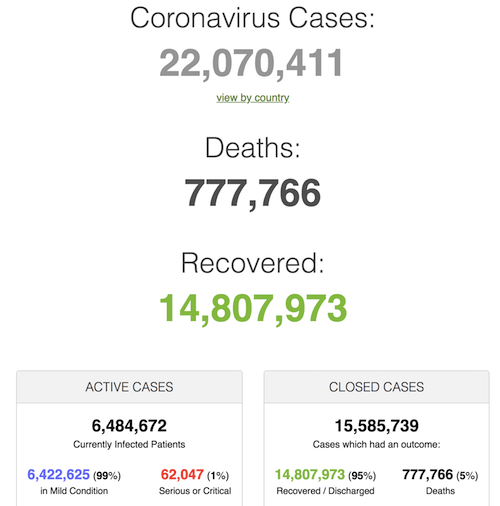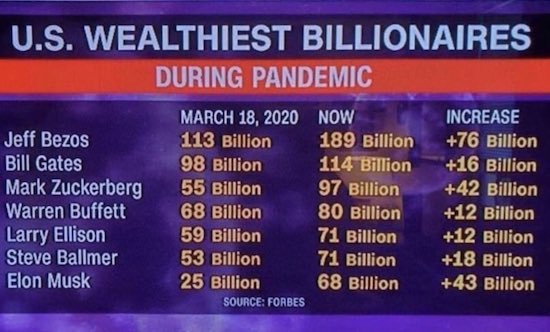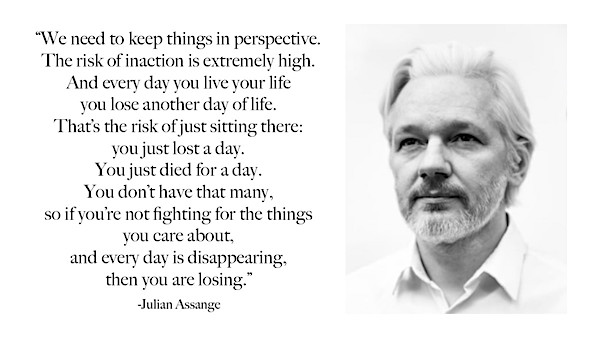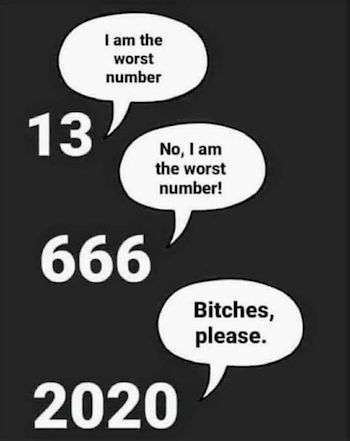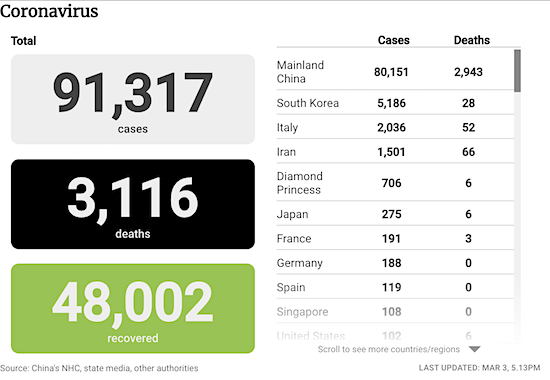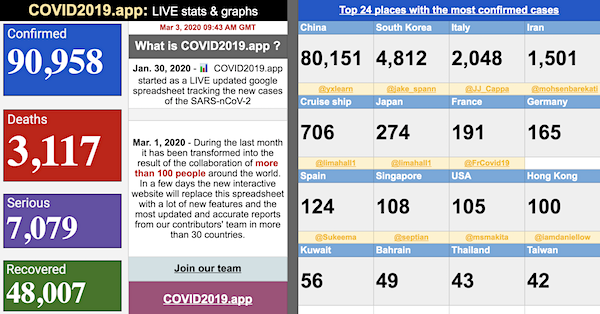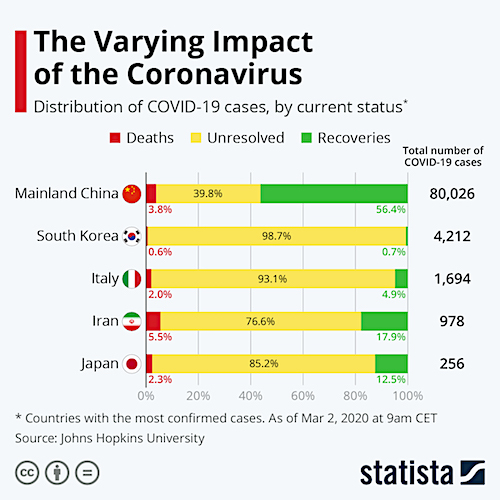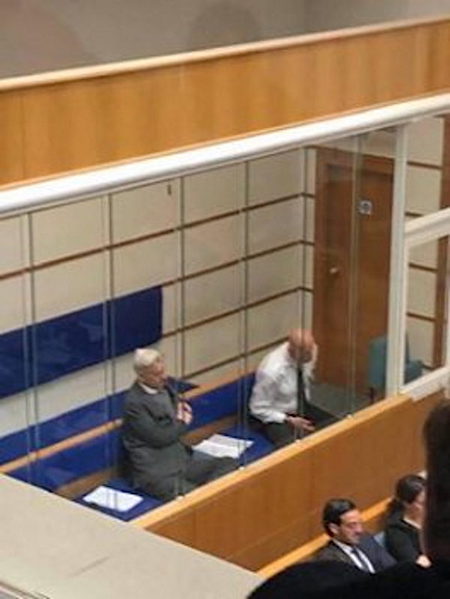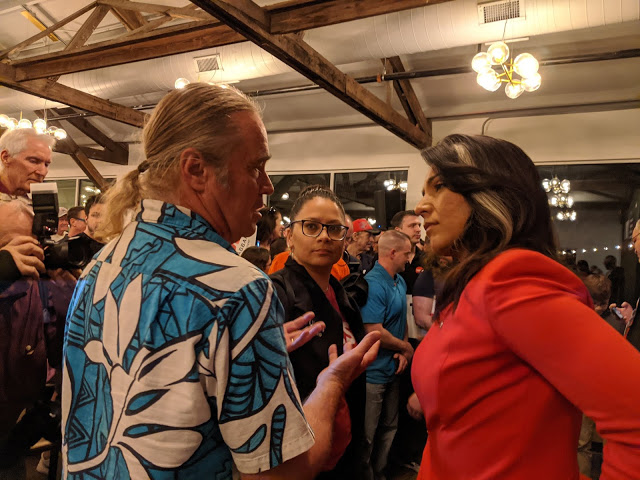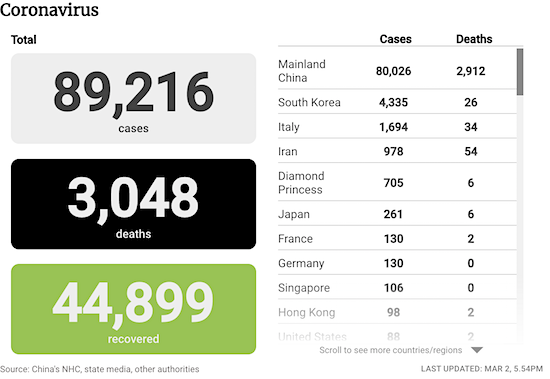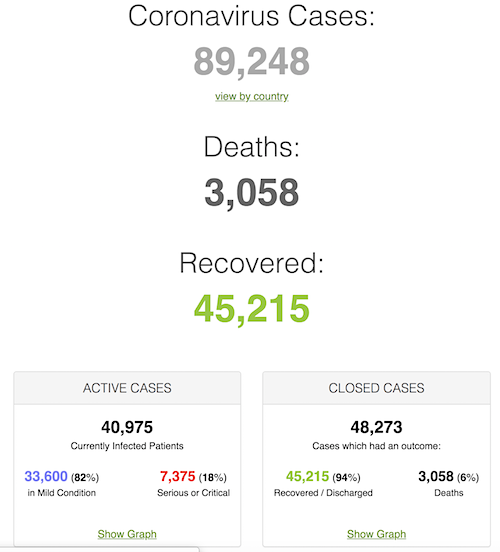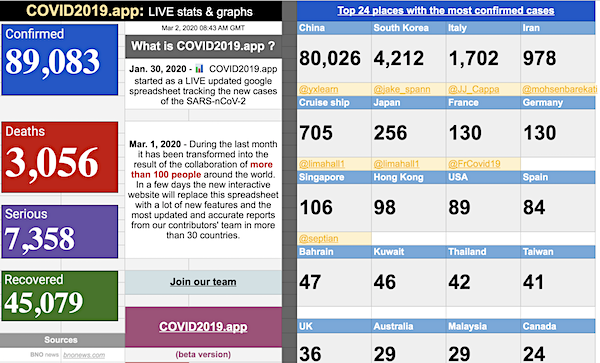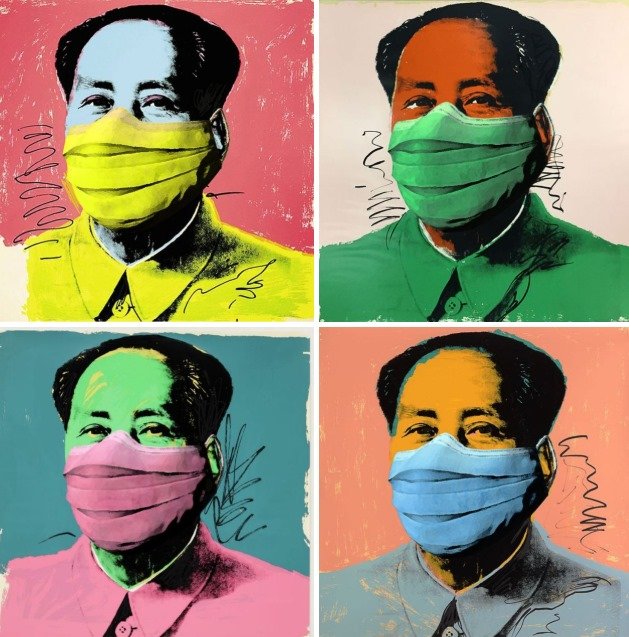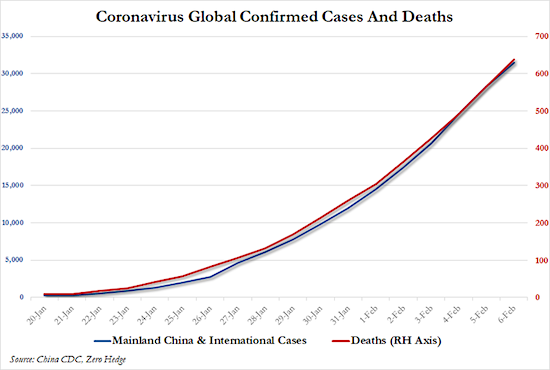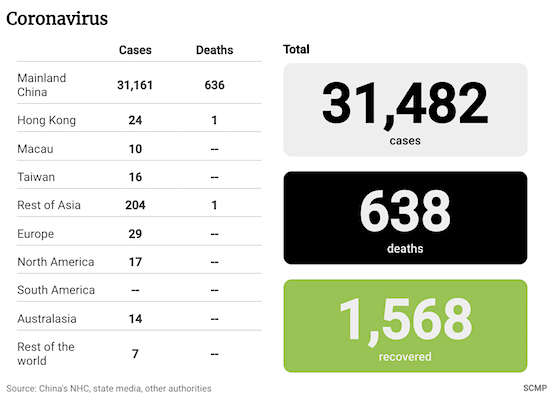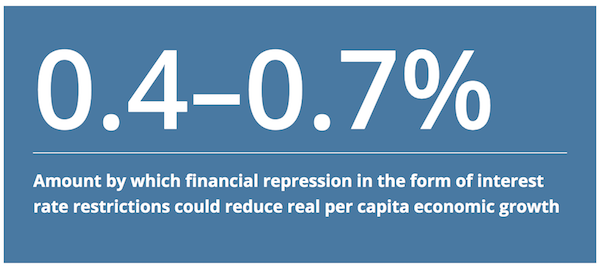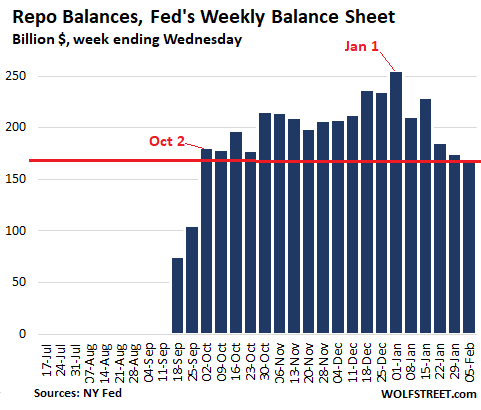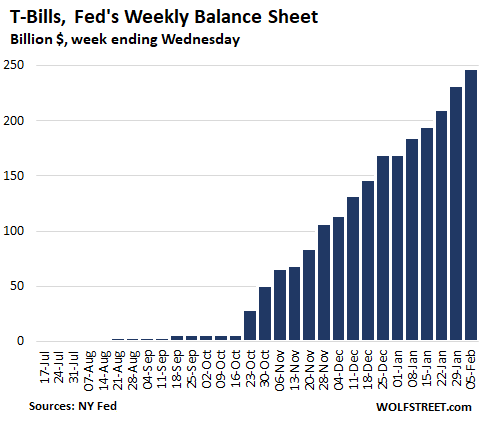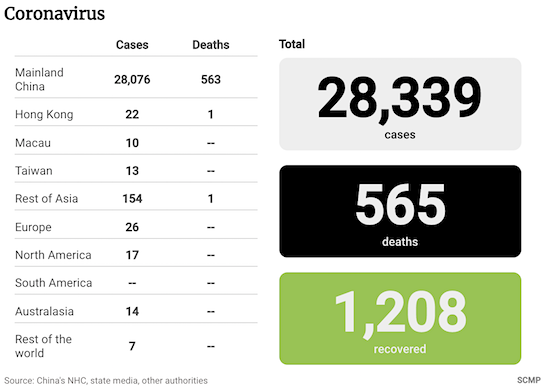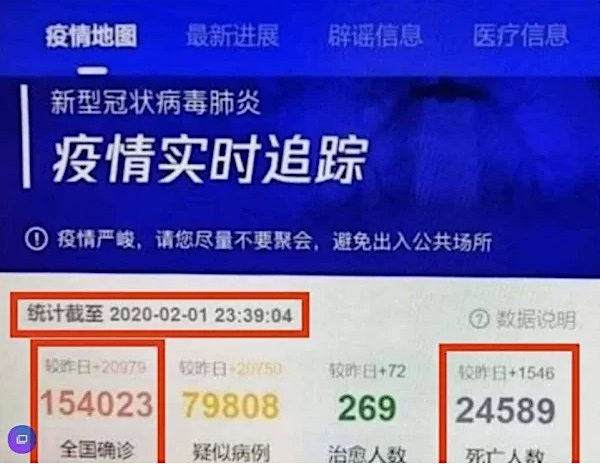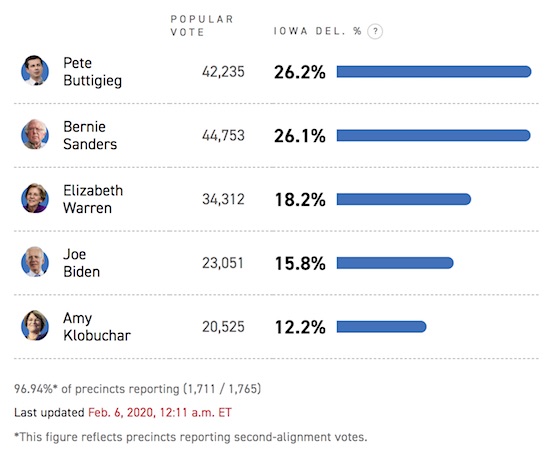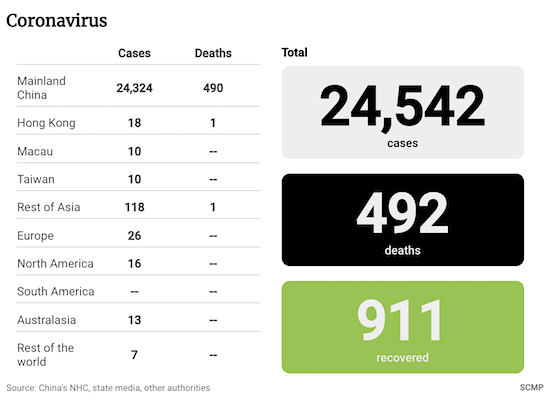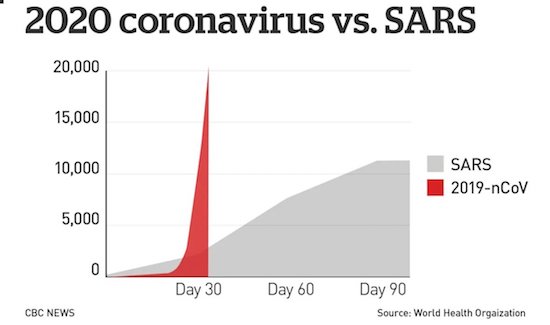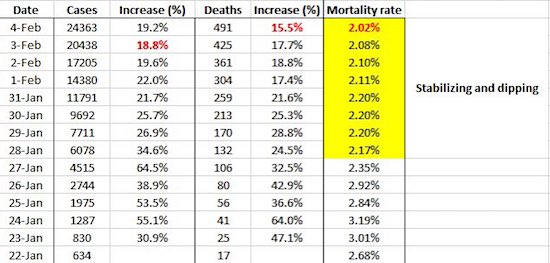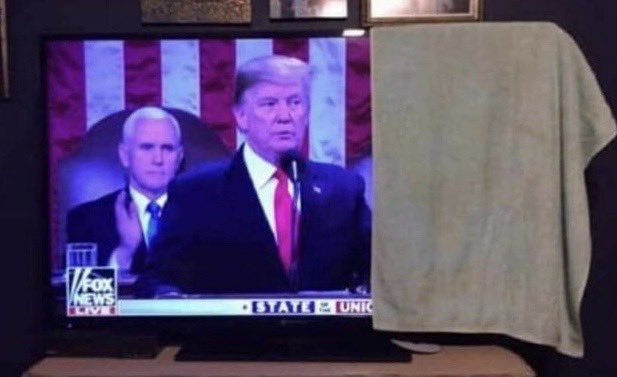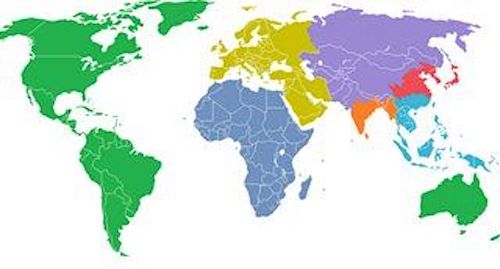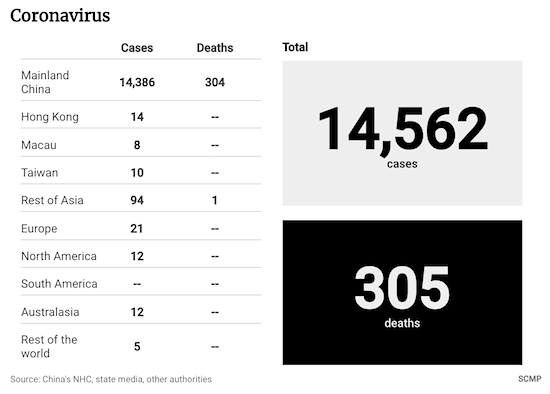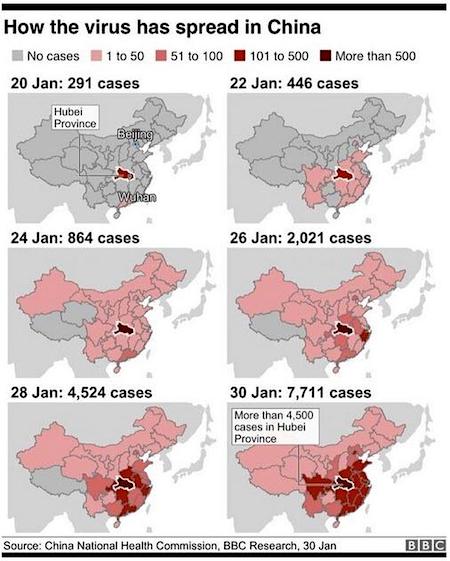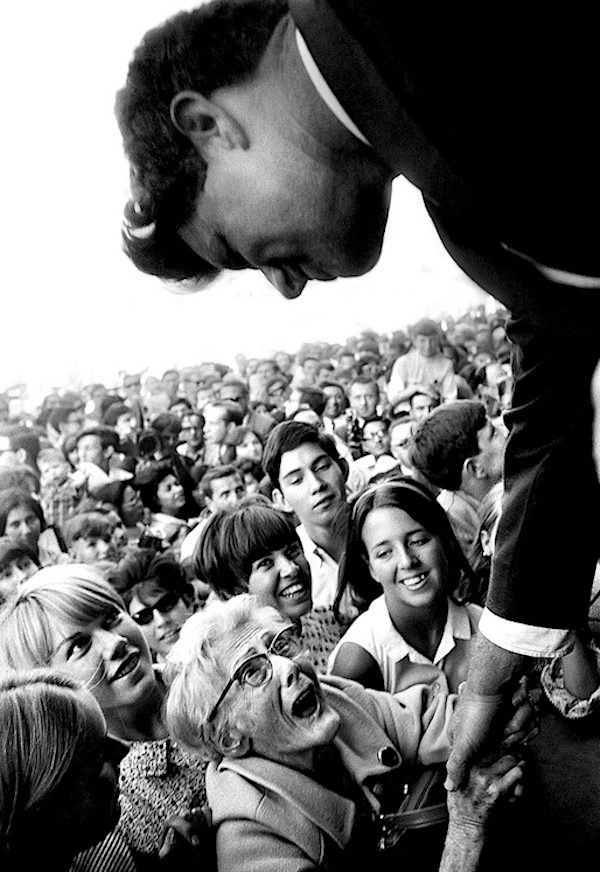
Steve Schapiro Robert Kennedy US Presidential Campaign 1968

Passing 800,000 deaths globally is a sad milestone again, but US new cases had their best week since the end of June, so that’s a good thing.

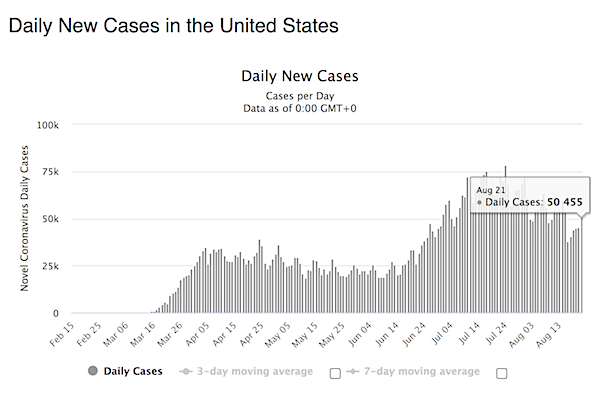

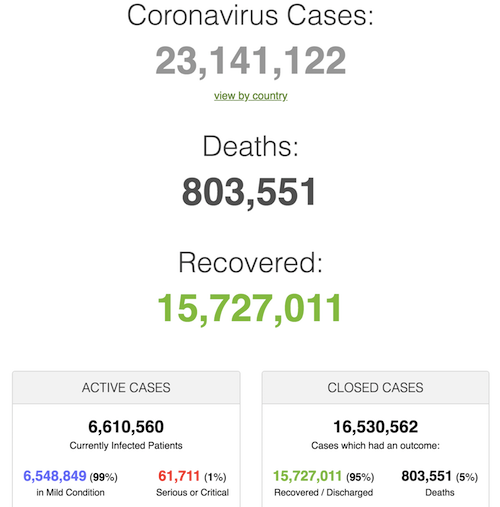

Postmaster
Senator Peters should be embarrassed.
The people of Michigan should be embarrassed!
cc @RichardGrenell pic.twitter.com/9UrhslbpOn— the conservador (@theconservador) August 21, 2020

Not sure every single person will see this as a reassuring message.
Amazing how little the man has to say who pretends to aid the entire world. When PPE corruption is one of your main talking points…
• Coronavirus Pandemic Could Be Over Within Two Years – WHO (BBC)
The head of the World Health Organization (WHO) says he hopes the coronavirus pandemic will be over in under two years. Speaking in Geneva on Friday, Tedros Adhanom Ghebreyesus said the Spanish flu of 1918 took two years to overcome. But he added that current advances in technology could enable the world to halt the virus “in a shorter time”. “Of course with more connectiveness, the virus has a better chance of spreading,” he said. “But at the same time, we have also the technology to stop it, and the knowledge to stop it,” he noted, stressing the importance of “national unity, global solidarity”.
The deadly flu of 1918 killed at least 50 million people. The coronavirus has so far killed almost 800,000 people and infected 22.7 million more. Dr Tedros also responded to a question about corruption relating to personal protective equipment (PPE) during the pandemic, which he described as “criminal”. “Any type of corruption is unacceptable,” he answered. “However, corruption related to PPE… for me it’s actually murder. Because if health workers work without PPE, we’re risking their lives. And that also risks the lives of the people they serve.”

Well she actually said “If you go into Starbucks in the middle of Texas and Alabama and Mississippi that have very high case rates..” But then, in states with lower case rates it should be even safer…
• Dr. Birx: November In-Person Voting As Easy As Going To Starbucks (JTN)
The doctor coordinating the White House Coronavirus Task Force says she believes it will be safe for voters to go to the polls in November. “Well, I can tell you it has been safe for me to go to Starbucks and pick up my order,” Dr. Deborah Birx told Just The News in an interview when asked about in-person voting. Birx has been traveling the country by car and one of her practices is to visit as many Starbucks as she can in an attempt to gauge whether people are wearing masks and socially distancing. She said her coffee experiences in states that have higher than normal COVID-19 cases, has led her to a conclusion about voting. “If you go into Starbucks in the middle of Texas and Alabama and Mississippi that have very high case rates, then I can’t say that it would be different waiting in line in the polls,” Birx said.
Of course, she cautions that masks must be worn and social distancing must be adhered to. “I know there’s a way but you really do have to pay attention,” she added. Birx spoke Friday afternoon at the White House on a myriad of topics. While much of the discussion centered on vaccines and a potential timetable for a return to normal, she also revealed something personal: she’s been a victim of harassment and threats via technology. “I do get death threats, and I get text messages that are horrific,” she said. “I get stuff sent to my home where my daughters are that is shocking and their phones get shocking messages. All of that has been happening since March.”
In a way, Birx has a thankless job as she tries to navigate not just the reality of a deadly virus but the political realities as well. Most of the criticism has come from liberal Democrats who have criticized her for not doing enough to set the record straight on some of the president’s medical claims. Birx, who has served in both Republican and Democratic administrations for decades, said she will soldier on. “You just have to stay true to your own personal values,” she said. “I’ve never been asked to cross that line. I believe when people look back that they’ll find out that I personally never crossed that line.”

The Tulsi treatment is the state of the DNC in a nutshell. Cancel culture at its finest, advertized as unity. And Bernie, AOC, Tulsi swallow it all.
This week’s Democratic virtual gathering to nominate the Joe Biden/Kamala Harris ticket for the November election was a triumph of party centrism over the progressive wing. Representative Alexandria Ocasio-Cortez was given a whopping 90 seconds to nominate Bernie Sanders in a technical procedure, and no members of her ‘squad’ were given the stage. Instead, a parade of speakers from both parties told Americans that replacing Donald Trump with Biden was the single most important task at hand. One other party outsider was noticeably absent at the convention. Tulsi Gabbard, the representative for Hawaii, was snubbed despite remaining in the primary race right until Biden’s imminent victory and winning two delegates.
In those metrics, she performed better than VP nominee Harris herself. Yet Gabbard “was not invited to participate in any way”, she confirmed on Twitter. Frankly speaking, she would have been welcomed at the convention about as gladly as evil witch Maleficent at the birthday party of Sleeping Beauty. Once considered a rising political star and given the same duty to nominate Sanders in 2016 as AOC this year, Gabbard has become a pariah in her own party over the past two years. Apparently, the Democratic leadership would rather give a platform to someone who helped lie the country into the 2003 Iraq invasion than to a woman who calls for an end to forever wars, some commenters noted. During the campaign, Gabbard stepped on quite a few toes. Going after Harris’s prosecutorial record was arguably the moment the California senator’s bid for presidency went sideways.
Guest of honor Pete Buttigieg, described by Biden as the future of the party, would probably not appreciate her either. After all, after he brought up her infamous trip to Syria during a debate, Gabbard gave him a lecture on the importance of talking to your adversaries. [..] The redbait smearing of Gabbard began early in her campaign. In February 2019, NBC declared her a “Russian favorite” based on the opinion of New Knowledge, the shady firm best known for fabricating a ‘Russian influence campaign’ during the 2017 Senate special election in Alabama. In October, the same attack was launched from the very top of the party establishment, as Hillary Clinton claimed the Kremlin was “grooming” Gabbard to run as a third-party candidate.
https://twitter.com/TulsiGabbard/status/1296591920538550273

“As the country’s social fabric is torn apart by evictions, record unemployment, and mass death, they decided to hold a virtual prayer circle for Republican senator John McCain.”
• This Year’s DNC Was 2016’s DNC on Steroids (Savage)
Save a few protests from frustrated Sanders delegates, the convention was a pristine spectacle of celebrity-driven, limousine liberalism at its most cartoonish and out of touch. No one expected a politician like Clinton to remake herself as a populist figure. But the four-day elite love-in — hosted, no less, at a convention center bearing the name of one of the world’s biggest banks — was so dripping with Ivy League pretension and Hollywood glam that it looked more like an awards show than a democratic appeal to the citizens of a republic. November was still three, potentially perilous months away, and — despite a year of unexpected populist insurgencies from both the Left and right — Democrats were already measuring the drapes for an indefinite future residency in the White House.
When November finally did come, their complacency would be punished with the single greatest political upset in modern history. In more ways than one, this year’s DNC evoked an ominous feeling of deja vu. True enough, the context is very different. This time, Donald Trump is the incumbent president and America is in the throes of the worst economic crisis since the Great Depression. Contra Clinton, the party’s nominee was merely the final centrist standing among what was this time a vast field of candidates rallying to neutralize Sanders — and, unlike its last standard-bearer, he was more the establishment’s measure of last resort than its first choice.
Notwithstanding these differences, the parallels between this week’s convention and the gilded spectacular of 2016 are difficult to overlook. Yet again, Democrats are headed into a consequential election with a Wall Street–friendly ticket raking in millions from financial concerns and doing its utmost to signal it has minimal interest in honoring key campaign pledges.
As in 2016, party leaders feel they can openly flaunt their contempt for a progressive left that has nowhere else to go while putting their chips on anti-Trump Republicans and conservative suburbanites (to that end, John Kasich and Colin Powell were featured prominently on the schedule while the Democrats’ brightest star got just over one minute).
With the state of the country inarguably worse than it was in 2016, this formula somehow looks even more out of touch than it did four years ago. During a moment of national reckoning with racism and police violence following the brutal murder of George Floyd, Democrats opted to give the architect of stop-and-frisk a prime-time speaking slot. As the country’s social fabric is torn apart by evictions, record unemployment, and mass death, they decided to hold a virtual prayer circle for Republican senator John McCain. Despite giving a speech that exceeded most expectations, their tribune is a candidate whose ability to win is privately doubted even by the people who proved most critical to his nomination.

“With universal mail-in voting, the government would mail ballots to everyone, regardless of whether they request them.”
• The Truth About The Post Office Controversy (Patel)
Do we really have to worry about the Postal Service? That’s the latest faux controversy to dominate our political debate. It’s a sign of our times that even the mail system isn’t without controversy. As usual, there’s plenty of blame to go around on how we got into this mess. In the midst of the COVID-19 pandemic, it’s reasonable to presume we need more absentee voting. Packing voters into overcrowded indoor polling places with long lines is not a good idea. Our government and politicians of all stripes have a duty to promote free and fair elections whether in person or absentee. That shouldn’t be a controversial idea. At the same time, there are legitimate concerns about universal mail-in voting.
Absentee voting is different. With absentee voting, a specific voter requests his or her specific ballot to vote by mail. That system has been used for years and — especially in the states doing it best — it works pretty well. Universal mail-in voting is different. With universal mail-in voting, the government would mail ballots to everyone, regardless of whether they request them. Some places even allow for “ballot harvesting,” where a third party can collect ballots for many people and file them in bulk. This system has not traditionally been used widely, and it raises legitimate concerns over voter fraud. A 2018 North Carolina congressional election was in fact overturned after a state probe found that a Republican operative illegally collected ballots with forged signatures and filled in votes.
The Postal Service controversy falls in the midst of the very legitimate debate. We should all be able to agree that to the extent mail-in voting is used — the absentee variety would be my preference — the Postal Service has to be able to handle its role to ensure a fair election in a reasonable time frame. The Postal Service — which is supposed to operate independently based on funding from the postal fees it charges — has been losing money for years. Due to email and other forms of communication, we send about 30% fewer letters each year than we did just a decade ago. To combat this, the Postal Service has been reducing its operating costs. That all makes sense. Now comes the controversy part. There are three drivers contributing to it. Two are self-inflected by the Republicans, and one — likely the biggest — is being driven pretty disingenuously by the Democrats.
First, it would have made sense to pause some Postal Service operating cuts as it became more and more clear after COVID-19 that we were going to rely more on the mail this election cycle than in any other. Taking mail sorting machines out of service and cutting back on mailboxes that are less used may not be the best moves when you know the mail will be crucial for a national election. A pause in operating cuts makes sense in case the equipment is needed for real, substantive reasons — to ensure a fair and timely election — and also to induce confidence among the American people that our sacred right to vote will not be abridged due to the pandemic. This is exactly the justification the Postal Service provided this week when they finally announced such a pause. It was, of course, too late to stem the controversy.
Second, as is the case with so many controversies of this era, President Donald Trump did not do himself any favors with his comments on the matter. Trump said he opposed more money for the Postal Service because without that money, “You can’t have universal mail-in voting, because they’re not equipped to have it.” The president is not wrong to question universal mail-in voting, but his statement that he was going to unilaterally in effect stop it through a holdup of postal funds only added fire to Democrats’ claims that he was against taking steps to have a fair election during the pandemic.

Read of the day. Excellent. Where it all comes together.
• Catapulting Russian-Meddling Propaganda (Ray McGovern )
The Best Defense… is a good offense, and the Senate Intelligence Committee’s release of its study — call it “Mueller (Enhanced)” — and the propaganda fanfare — come at a key point in the Russiagate/Spygate imbroglio. It also came, curiously, as the Democratic Convention was beginning, as if the Republican-controlled Senate was sending Trump a message. One chief worry, of course, derives from the uncertainty as to whether John Durham, the US Attorney investigating those FBI and other officials who launched the Trump-Russia investigation will let some heavy shoes drop before the election. Barr has said he expects “developments in Durham’s investigation hopefully before the end of the summer.”
FBI attorney Kevin Clinesmith already has decided to plead guilty to the felony of falsifying evidence used to support a warrant from the Foreign Intelligence Surveillance Court to surveillance to spy on Trump associate Carter Page. It is abundantly clear that Clinesmith was just a small cog in the deep-state machine in action against candidate and then President Trump. And those running the machine are well known. The president has named names, and Barr has made no bones about his disdain for what he calls spying on the president. The cognoscenti and the big fish themselves may be guessing that Trump/Barr/Durham will not throw out heavier lines for former FBI Director James Comey, his deputy Andrew McCabe, CIA Director John Brennan, and Director of National Intelligence James Clapper, for example.
But how can they be sure? What has become clear is that the certainty they all shared that Hillary Clinton would be the next president prompted them not only to take serious liberties with the Constitution and the law, but also to do so without taking rudimentary steps to hide their tracks. The incriminating evidence is there. And as Trump becomes more and more vulnerable and defensive about his ineptness — particularly with regard to Covid-19 — he may summon the courage to order Barr and Durham to hook the big fish, not just minnows like Clinesmith. The neuralgic reality is that no one knows at this point how far Trump will go. To say that this kind of uncertainty is unsettling to all concerned is to say the obvious.
So, the stakes are high — for the Democrats, as well — and, not least, the LSM. In these circumstances it would seem imperative not just to circle the wagons but to mount the best offense/defense possible, despite the fact that virtually all the ammunition (as in the Senate report) is familiar and stale (“enhanced” or not). Black eyes might well be in store for the very top former law enforcement and intelligence officials, the Democrats, and the LSM — and in the key pre-election period. So, the calculation: launch “Mueller Report (Enhanced)” and catapult the truth now with propaganda, before it is too late.

NATO is not capable of fighting Russia. But it can wage a one-sided domestic disinformation war.
• Fighting Russia Has Become An Existential Necessity For NATO – Lavrov (RT)
Confrontation with Russia has become the sole reason for NATO’s existence, and this encourages instability in Europe, creating artificial dividing lines on the continent. That’s according to Russian foreign minister Sergey Lavrov. The veteran diplomat told the Moscow daily Trud that everyone knows there are no real threats to security in Europe but that NATO needs to invent them in order to keep itself relevant. Lavrov also drew attention to the fact that Russia has repeatedly proposed measures to reduce tensions and reduce the risk of incidents on the continent. “Now, just like during the Cold War, fighting Russia on all fronts, including information and propaganda, has become the alliance’s reason for existence,” he explained.
“NATO has deployed extensive resources on the eastern flank, near our borders, including conducting exercises and improving military infrastructure.” “The alliance continues to expand its area of military and political influence, inviting all new countries under its ‘umbrella’ under the pretext of protecting them from Russia,” he added. Lavrov further explained that the alliance adheres to the line of “containment and dialogue” in relations with Russia, although “as a result, there is practically no place for a real and open dialogue on pressing problems.” In the same interview, the foreign minister accused Ukrainian authorities of not hiding their desire to use the conflict in the Donbass to preserve European Union sanctions pressure on Russia, by not fulfilling their obligations under the Minsk Agreements.
According to him, Kiev takes advantage of the fact that the EU continues to link the issue of improving relations between the bloc and Russia with the implementation of the Minsk agreements, to which Russia is not a party. “Alas, this artificial and short-sighted link persists to this day – to the great satisfaction of the Kiev authorities, which not only do not fulfill their obligations under the Minsk Package of Measures, but also make no secret of their desire to use the unresolved conflict to maintain sanctions pressure against Russia,” Lavrov said.

If Barr continues to fiddle on the Durham report, Trump may do it anyway.
• AG Barr Throws Cold Water On Possible Edward Snowden Pardon (ZH)
Once again President Trump’s anti-establishment and ‘anti-deep state’ instincts look like they’ll be promptly reigned in by those around him. He shocked leaders in Congress and within his own administration when one week ago he mused openly in a New York Post interview that maybe Edward Snowden should be pardoned. In follow-up he said at a press briefing last Saturday “There are many, many people – it seems to be a split decision that many people think that he should be somehow treated differently, and other people think he did very bad things.” And further that: “I’m going to take a very good look at it.” The president raised eyebrows and anxiety across the D.C. beltway with his unprecedented remarks.
“There are a lot of people that think that he is not being treated fairly. I mean, I hear that,” he had initially told NY Post, before adding: “Many people are on his side, I will say that. I don’t know him, never met him. But many people are on his side.” This immediately raised hopes among those that hail the NSA leaker as a whistleblower who exposed deeply unconstitutional surveillance of the domestic populace that he might one day soon see freedom. But now Attorney General William Barr is throwing cold water on such a bold prospect, saying to the Associated Press on Friday that he’d be “vehemently opposed” to any initiative to pardon Snowden, who remains on the run from US authorities – but given asylum in Russia.
If he were to return to the United States he would face severe charges related to the Espionage Act and spilling of state secrets, which would certainly bring life imprisonment. “He was a traitor and the information he provided our adversaries greatly hurt the safety of the American people,” Barr said in the new comments. Interestingly, Trump’s own view as expressed years ago was that Snowden was a “traitor”. Barr’s latest comments frame Snowden’s actions as motivated by money and fame, and not of out of a sense of patriotism or concern for upholding the Constitution: “He was peddling it around like a commercial merchant. We can’t tolerate that,” Barr added firmly. Recall that last year the DOJ under Barr fought to ensure that Snowden wouldn’t see any money generated from US sales of his tell-all book Permanent Record.

Japan has been quiet, it’s true.
• What A Nation Cut Off From The Rest Of The World Looks Like (Saxo)
Earlier this morning, there has been a couple of Japanese data releases. Japanese consumer price inflation was unexciting with a rate at 0% YoY. While we see some relative price changes in many countries, the basic story for the moment is that inflation will remain low in most countries. In addition, Japan National Tourism Organization has published its latest data regarding the flow of foreign visitors in July. Basically, it shows what a nation cut off from the rest of the world looks like. The flow of foreign visitors in Japan published by Japan National Tourism Organization is out this morning. The country was supposed to welcome an unprecedented number of Olympic fans from all around the world just about now, but the pandemic has turned everything upside down.

Arrivals of foreign visitors plunge 99% YoY in July, at 3,800 individuals (slightly up compared to the previous month, when it stood at 2,600 individuals). For the sake of comparison, at the beginning of the year, the country recorded more than 2.6 million foreign visitors in a month’s time. Whilst the country expected to draw around 40 million visitors this year, the final number for 2020 might fall to 7-8 million at best, which would represent a drop of 80% compared to the target. Over the past years, the contribution of travel and tourism to GDP has significantly increased, to reach 7% in 2019, on the back of government’s incentives to promote foreign tourism via marketing push overseas and eased visa requirements.
The COVID-19 constitutes a serious setback for the government’s hopes for tourism and it is unlikely that the recent campaign to spur domestic tourism launched on July 22 will offset losses generated by the drop in the flow of foreign visitors. Considering the number of new COVID-19 cases has sharply increased since mid-July and that many countries at global level are facing the acute risk of second wave, the country is not expected to reopen to foreigners anytime soon and will probably postpone initial plans to let foreign students and businessmen return.

Well, speak out then. A lot louder than this.
• Alan Rusbridger: Assange Case Is Worrying For All Journalists (PG)
Former Guardian editor Alan Rusbridger has said the ongoing US extradition case against Wikileaks founder Julian Assange is “disturbing” and “has worrying implications for all journalists”. And he has said it is “surprising” that more don’t share his concerns. While Assange has garnered support from a range of campaigning groups for his plight, the response from journalists and the news industry in the UK has been relatively muted. Rusbridger was editor of the Guardian for 20 years, leaving in 2015. Under his editorship the paper worked with Wikileaks on the 2010 Iraq and Afghanistan war logs and, a few years later, the Snowden Files. [..] Any charges against Assange relating to journalistic activity, such as the publishing of material in the public interest, “should be dropped”, Rusbridger told Press Gazette.
[..] Rusbridger said that while Assange had done things he can’t defend, and which “stray beyond the conventional definition of journalism”, the Australian is not “all good or all bad”. “When you stand back and say, well, whatever we think of Assange, what he is being targeted for is the same or similar as many journalists have done, then it’s surprising to me that more people can’t see that this case has worrying implications for all journalists” Rusbridger said the precedent set by the UK of allowing someone to be extradited for prosecution under another country’s official secrets laws could ultimately be used by regimes to target British journalists who report on sensitive information about foreign powers. “It’s quite a disturbing thing that we should send somebody to another country for supposedly breaking their laws on secrecy. If journalists are not concerned by that, then I think they should be,” he said.
“The danger here is that if everyone sort of shrugs and leaves Assange to his fate and this sets some kind of judicial precedent, then the next time… a journalist on the Sunday Times writes about a secret Israeli weapons system, as has happened in the past, the Israelis say ‘well actually that breaches our Official Secrets Act, under the Assange precedent we now ask for this person to be returned to our country so we can prosecute them’. “You could see how what seems like a sort of tangential case involving somebody that I know lots of journalists don’t really regard as a proper journalist suddenly becomes something that has set a very alarming precedent.”
On the question of whether Assange is a journalist, Rusbridger said he was “one of these complicated figures that we’ve never had to deal with before the 21st Century” and had “many identities”. He said Assange clearly did “some things that are journalistic”, pointing in particular to the Collateral Murder video that showed a US air attack in Iraq that killed a dozen people, including two Reuters media workers. “Any newspaper would have been thrilled to run that story,” said Rusbridger. “It was a really, truly shocking story in the public interest. “So that was clearly journalism, but [Assange is] also an activist, he’s a publisher, he’s a kind of impresario, he is a whistleblower, he’s a kind of information anarchist, and so that that makes him very difficult to categorise or to work out what our attitude to him is.

We try to run the Automatic Earth on donations. Since ad revenue has collapsed, your support is now an integral part of the process.
Thank you for your ongoing support.

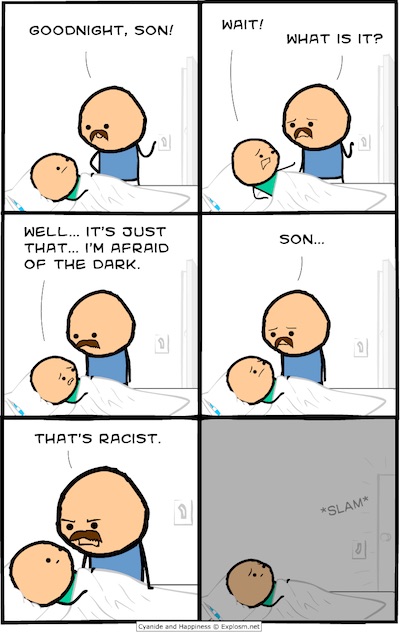



Support the Automatic Earth in virustime.


